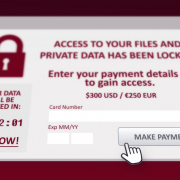Cloud & Hosted Services for Businesses
Many people have heard of Cloud Computing and Hosted Services but aren’t sure what it is. In this short article, I’ll try to explain what they are and why they may be a good choice for your business.
Essentially, Cloud Computing and Hosted Services deliver services via the internet to your PC and in most cases, without the need to physically install software or hardware. As long as you have an internet connection, you’ll be able to use the software or services from any computer.
In the current business environment, companies typically buy software and hardware; pay to have a provider install the systems, pay to keep it running through updates, patches, maintenance, etc. then pay yet again to upgrade it. With Cloud and Hosted Services, those headaches and most of those expenses go away. You pay a reasonable monthly fee so there are little or no large upfront costs and the service provider takes care of keeping the applications and hardware running properly, patched, updated, and accessible to you via the internet. For hardware such as servers, monthly maintenance expenses still apply, but the large upfront purchase costs (which can be quite high) and the necessary manpower (and associated expense) needed to maintain the equipment are eliminated.
Cloud and Hosted Services help businesses:
- Conserve cash by eliminating large upfront costs
- Gain access to professionally managed applications and hardware
- Reduce the risk to ongoing business operations should disaster strike a firm’s physical location (i.e. fire, flood, etc.)
- Cut overall operating expenses by paying only for the services you want on a monthly basis.
The deployment models used by businesses for Cloud Computing are:
- Public – where applications are provisioned by a third party provider. Computing resources are securely shared with other clients on the service provider’s hardware.
- Community – computing resources are shared among a community of organizations that share a common bond.
- Private – is hosted within one organization for the benefit of its employees and managed by the company.
- Hybrid – is a model based on a mixture of models, such as public and private, etc.
Examples of Cloud & Hosted Services for businesses are:
- Software as a Service (SaaS) delivers software tools and applications to users. Some well-known players in this field are Salesforce.com, Google Docs, and Microsoft 365 with more providers coming into the market at a rapid pace. Applications that use the Cloud Delivery model include Accounting, Collaboration, CRM, and Enterprise Solutions.
- Hosted Microsoft SharePoint for seamless Team collaboration
- Hosted Servers such as Windows 2003/2008, SQL Server, Linux servers, etc.
- Microsoft Exchange Servers
- Websites and Emails
- Cloud Server and Workstation Backup and Disaster Recovery Systems
As a business owner or executive your options are many. You can use Cloud and Hosted Services as the mainstay of your company’s total IT solution or to augment your present IT organization to increase overall services and expand your Disaster Recovery options.
Additionally, Cloud and Hosted Services can generally be deployed faster than in-house versions. Service providers are able to provision software and hardware very quickly. For instance, a hosted SharePoint application can generally be up and running for an organization within a few days whereas an in-house installation may take many weeks to complete.
A Managed Services Provider (MSP) such as XSolutions can help your business wade through the complex options and advise you on how to strength your firm’s IT structure so it becomes the asset it was always meant to be for your business.










